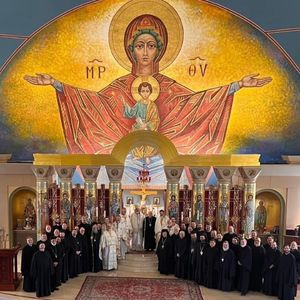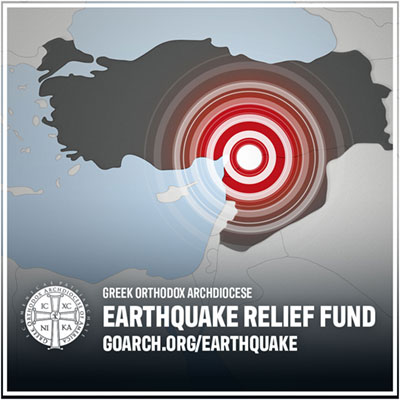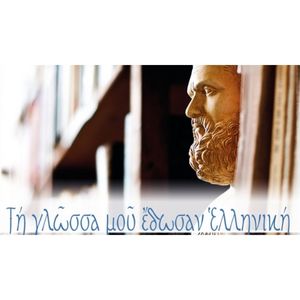Sunday of the Prodigal Son
Through the parable of today's Gospel, our Saviour has set forth three things for us: the condition of the sinner, the rule of repentance, and the greatness of God's compassion. The divine Fathers have put this reading the week after the parable of the Publican and Pharisee so that, seeing in the person of the Prodigal Son our own wretched condition -- inasmuch as we are sunken in sin, far from God and His Mysteries -- we might at last come to our senses and make haste to return to Him by repentance during these holy days of the Fast.
Furthermore, those who have wrought many great iniquities, and have persisted in them for a long time, oftentimes fall into despair, thinking that there can no longer be any forgiveness for them; and so being without hope, they fall every day into the same and even worse iniquities. Therefore, the divine Fathers, that they might root out the passion of despair from the hearts of such people, and rouse them to the deeds of virtue, have set the present parable at the forecourts of the Fast, to show them the surpassing goodness of God's compassion, and to teach them that there is no sin -- no matter how great it may be -- that can overcome at any time His love for man.









 The Metropolis of Denver held their Annual Clergy Retreat on February 7-8 at the Metropolis Center and the Assumption Cathedral of Denver.
The Metropolis of Denver held their Annual Clergy Retreat on February 7-8 at the Metropolis Center and the Assumption Cathedral of Denver.
 New York - His Eminence Archbishop Elpidophoros of America announces the Greek Orthodox Archdiocese Earthquake Relief Fund, a fundraising effort by the Greek Orthodox Archdiocese of America to provide humanitarian aid to the victims of the recent earthquakes in Türkiye and Syria.
New York - His Eminence Archbishop Elpidophoros of America announces the Greek Orthodox Archdiocese Earthquake Relief Fund, a fundraising effort by the Greek Orthodox Archdiocese of America to provide humanitarian aid to the victims of the recent earthquakes in Türkiye and Syria.
 On February 9 we celebrate international Greek language day. Started in 2017 to coincide with the annual commemoration of Greece’s national poet, Dionysios Solomos (April 8, 1798 – February 9, 1857), whose lyrics are featured in the Greek National Anthem, International Greek Language Day aims to promote awareness of the language’s unparalleled influence on other writing systems around the world.
On February 9 we celebrate international Greek language day. Started in 2017 to coincide with the annual commemoration of Greece’s national poet, Dionysios Solomos (April 8, 1798 – February 9, 1857), whose lyrics are featured in the Greek National Anthem, International Greek Language Day aims to promote awareness of the language’s unparalleled influence on other writing systems around the world.